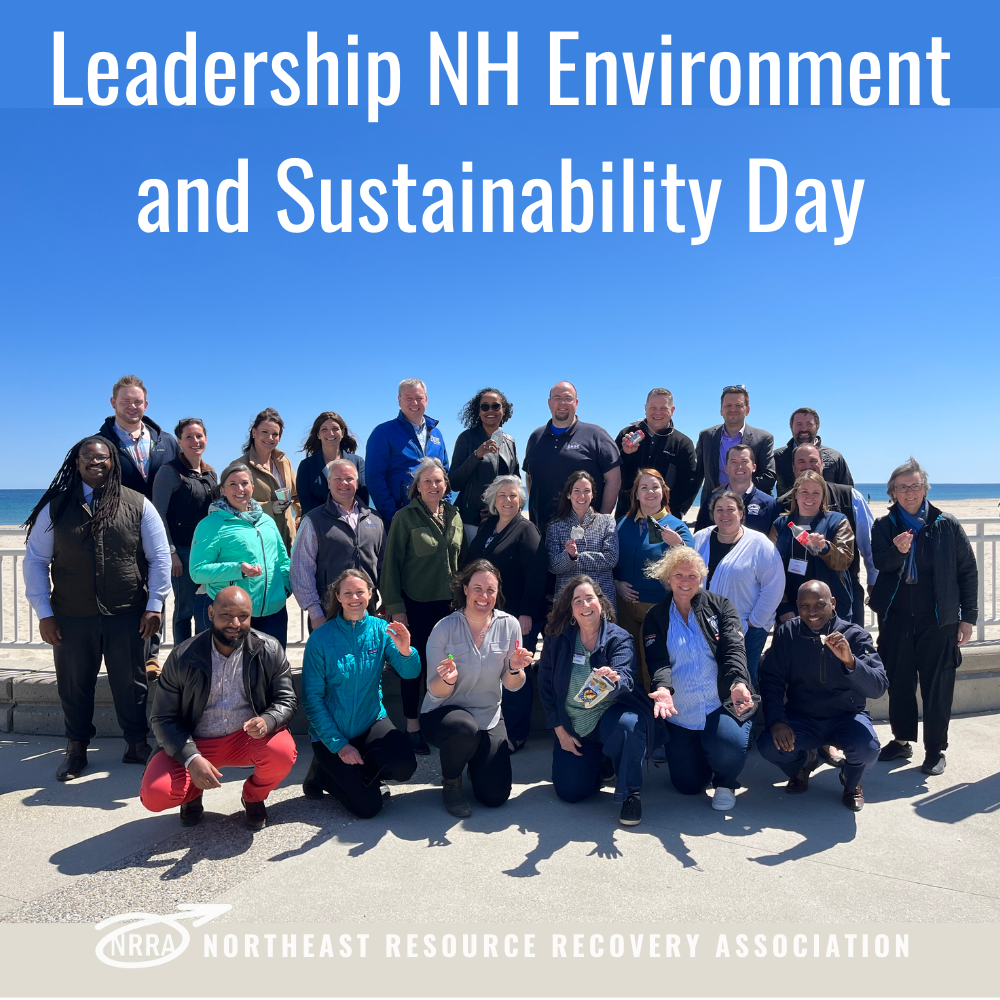Environment & Sustainability Day for Leadership New Hampshire
NRRA Executive Director, Reagan Bissonnette, recently shared about participating in the Leadership New Hampshire Environment & Sustainability program day:
I emphasized the following three takeaways in my talk:
(1) Nearly 1/4 of all our municipal solid waste (trash from households, businesses, schools) by weight disposed nationwide is food waste. A shocking number even to me now!
(2) Waste reduction, like recycling and composting, is more financially valuable in NH because New England has the highest cost for trash disposal in the entire country.
(3) The chasing arrows aka "recycling symbol" does NOT mean something is recyclable - it is a clue that shows the plastic resin type. This last one resulted in horrified gasps from several attendees. When I gave the example that a plastic Dunkin iced tea cup with a lid and straw is trash, one person cried out "I've been recycling wrong my entire life!"
Lastly, I shared six steps attendees could take to learn more and get more engaged in this issue, from easiest to most time-consuming:

- Sign up for Full of Scrap
- Buy recycled at home and work, like copy paper
- Stop throwing away your food scraps (for resources, check out our food waste services list)
- Invite NRRA to your town for a site visit (this is a Members-only benefit)
- Get your business a free waste reduction consultation from the Center for EcoTechnology
- Join your waste reduction committee in town, or form your own - but be mindful to work collaboratively with the knowledgeable municipal staff who handle your trash and recycling.
After my presentation, I'd estimate that at least 1/3 of my classmates came up to me after to rave about the presentation and conversation, which is a sign that people want this information and want to recycle more and recycle better.
When my Q&A ended I invited my classmates to join me outside for a beach litter cleanup for the latter part of our lunch break, followed by a group photo for Earth Week. They agreed, and we mostly found small pieces of plastic on the windy beach and boardwalk. The second part of our day included a presentation about climate change by Cameron Wake of UNH (pictured) and the economic impact of climate change by Rob Werner from the League of Conservation Voters.


